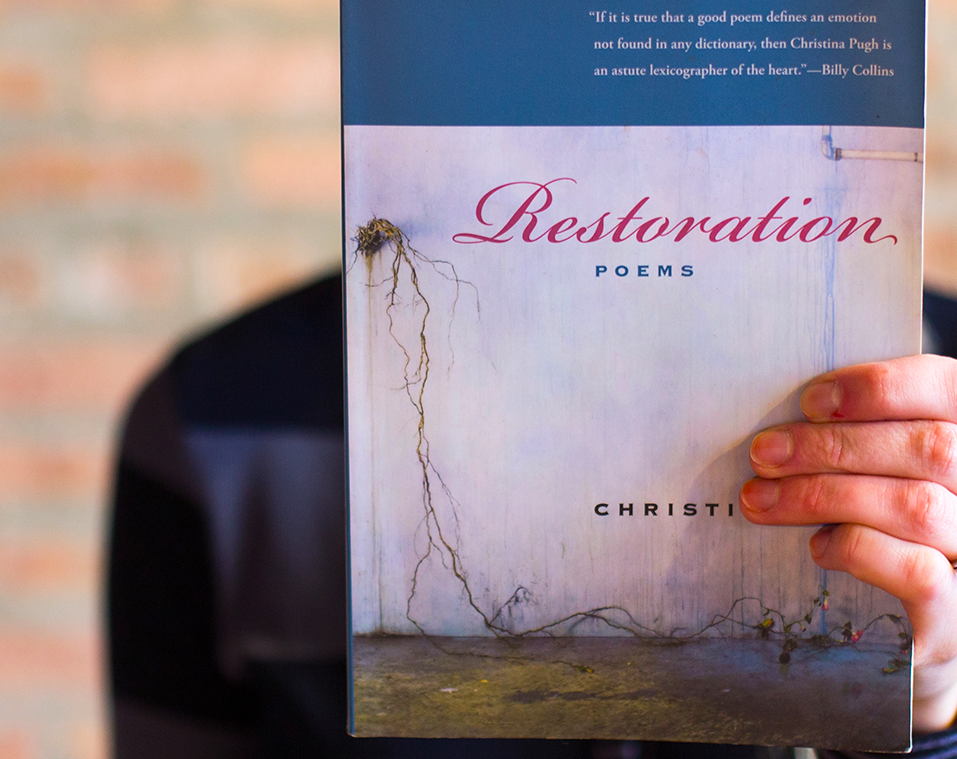Restoration
by Christina Pugh
TriQuarterly Books/Northwestern University Press, $14.95 (paper)
Don’t let the time stamp (“September 2001”) at the bottom of the first poem in Christina Pugh’s intelligent, compelling second volume, Restoration, mislead you. Pugh’s book makes no explicit mention of the events of 9/11. Instead, she references that period in much the same way that Virginia Woolf acknowledged “December 1910”: namely, as the approximate point at which “human character changed.” Restoration unfolds in the aftermath of such change. Pugh’s sharp psychological investigations mingle pronouns whose referents remain hauntingly unspecified, with uncanny, vivid imagery (“a stand of iris rises as an island in the grass”), creating a gently surreal, dream-bound, “crepuscular” world. Her speakers (one of whom toys with Wordsworth’s words in the bold “I Had No Human Fears”) challenge the concept of personhood: “I need // to leave myself: // imagine me / alive, with no sentience.” Like “the doctor” in the book’s centerpiece—the tremendous twelve-part poem “Notes for Dora,” based on Freud’s famed patient—who “pried each noun / from its casing, / so the pearl eardrops trembled free,” Pugh strips the skin of habit and familiarity from her subjects, transforming each into something luminous and new. A man finds he can “name the constellations / in his hand: / dragonfly, / pumpkin, cat’s-eye”; words can “sound / like a pipe / posed under glass, / or a map of some near galaxy” while “onstage, each dancer / has four arms, / four legs”; we learn we can eat “vowels for breakfast.” Pugh’s speakers warn that we may not be able to withstand the destabilizing power of these changes, glorious though the process of ongoing discovery (self- and otherwise) may be: the “last transformation / is the one / you’ll never see,” they stress, although “the lesson is inlaid with gold.” Throughout, we are unable to resist as Pugh leads us, Pied-Piper-like, into the “light / of erasure” where the self can be restored before we “zero out the losses” in “the temple / in the word, the sound / that convalesces.”







